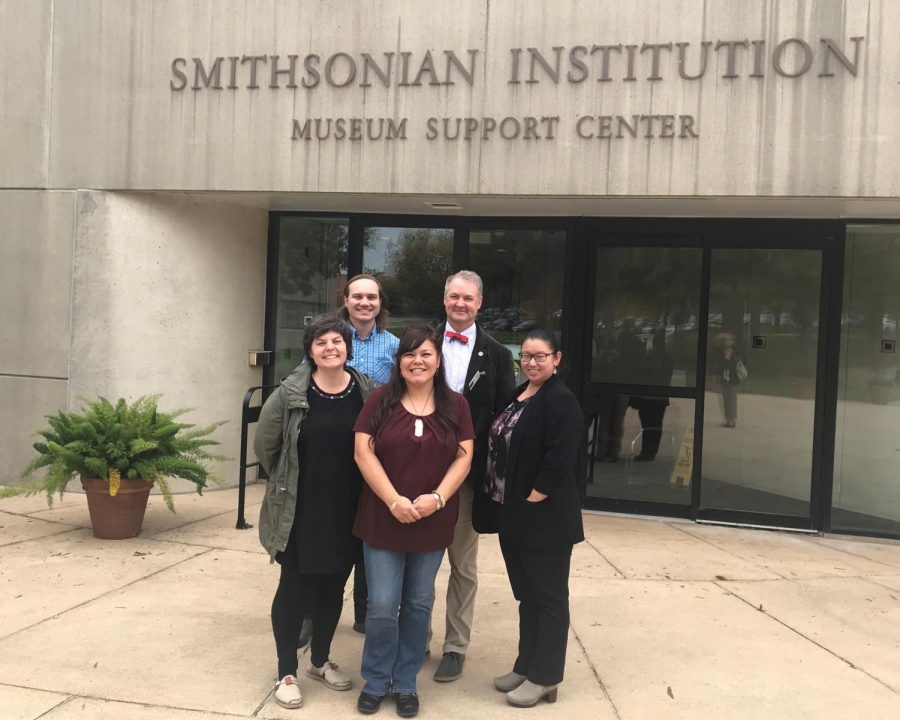WSU Native American community access program receives grant to continue research
Money will help correct inaccuracies in federal Native American records
A group of people involved with the Mukurtu Content Management System visit the Smithsonian Museum Support Center on their Mukurtu Shared trip to Washington D.C. The system is used to digitally return items to Native American communities through archives.
October 20, 2020
WSU received a $700,000 grant from The Andrew W. Mellon Foundation for the Mukurtu Content Management System, which is a software that allows communities to manage and share their cultural heritage digitally.
Mukurtu Shared is an expansion of this system that works with Native American nations and federal repositories, such as the Smithsonian Institution, to give Native materials digitally to their communities, said Kimberly Christen, WSU professor and director of the Digital Technology and Culture Program.
The money from the grant will help community workers from Native American tribes share their knowledge and stories about materials in repositories to correct inaccuracies in the records, she said.
The federal repositories hold Native materials, which consist of old photographs, audio recordings, field notes, baskets, pottery and other cultural items, Christen said.
The money will also go toward technical updates for the system’s software and an educational research toolkit for Native communities, she said.
“The federal repositories want the right information. They know they have the incorrect information,” Christen said. “The Mukurtu Shared initiative is that middle piece that was missing to connect the communities and repositories.”
The Mukurtu system allows members of smaller communities to access the materials without having to visit Washington D.C., said Amelia Wilson, executive director of the Huna Heritage Foundation.
The focus of the system is to digitally return items to their communities through archives rather than physical returns, Christen said. However, digitally returning items can lead to physical items being returned to their respective communities.
“It’s not a specific objective, but it has happened,” she said. “That’s why community members need to know what is in these archives.”
A federal repository returned grave goods from its collection to Nakia Williamson after he found that the objects belonged to the Nez Perce Tribe, Christen said. Williamson is the cultural resource program director of the tribe.
The grant allows researchers called Mukurtu Fellows to continue working on-site in Washington D.C., she said. Mukurtu Fellows find materials that have been misidentified within every repository’s Native collection.
The ability to access digital archives for Native artifacts provides communities the opportunity to learn more about their Native heritage and culture, Wilson said.
“It’s so much more meaningful when it’s specific to your community. That’s your history and your ancestors that you’re gaining this deeper understanding of,” she said. “I think it grounds and connects you to those times that you’re not familiar with.”
Materials from the repositories are used to revitalize Native languages and cultural practices in tribal schools, Christen said. The materials can also help with negotiating treaty rights.
The Mukurtu Sharing portal is open to the eight Native communities partnered with the initiative, she said. There are plans to open the portal to the public in the next two years.

















